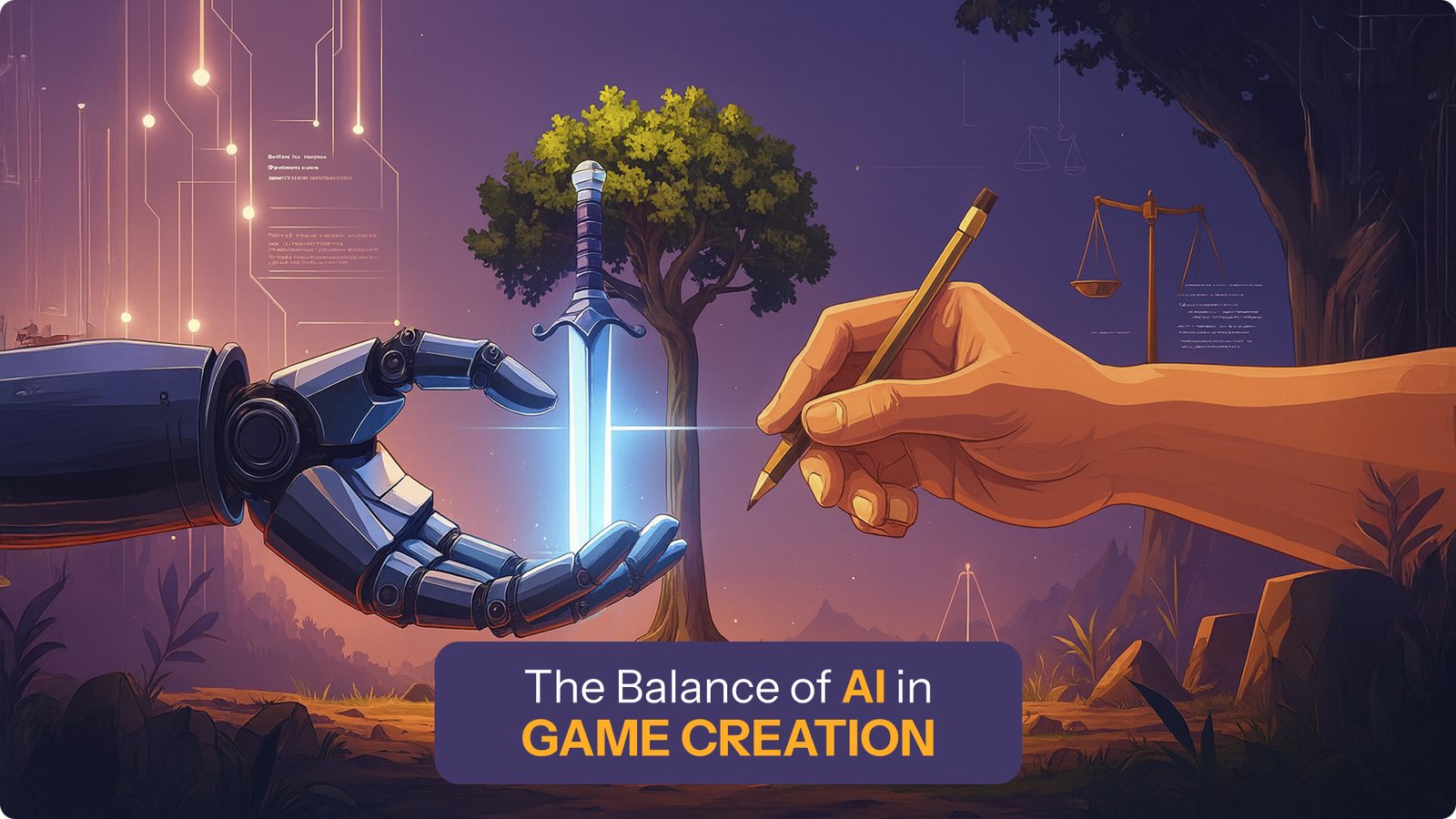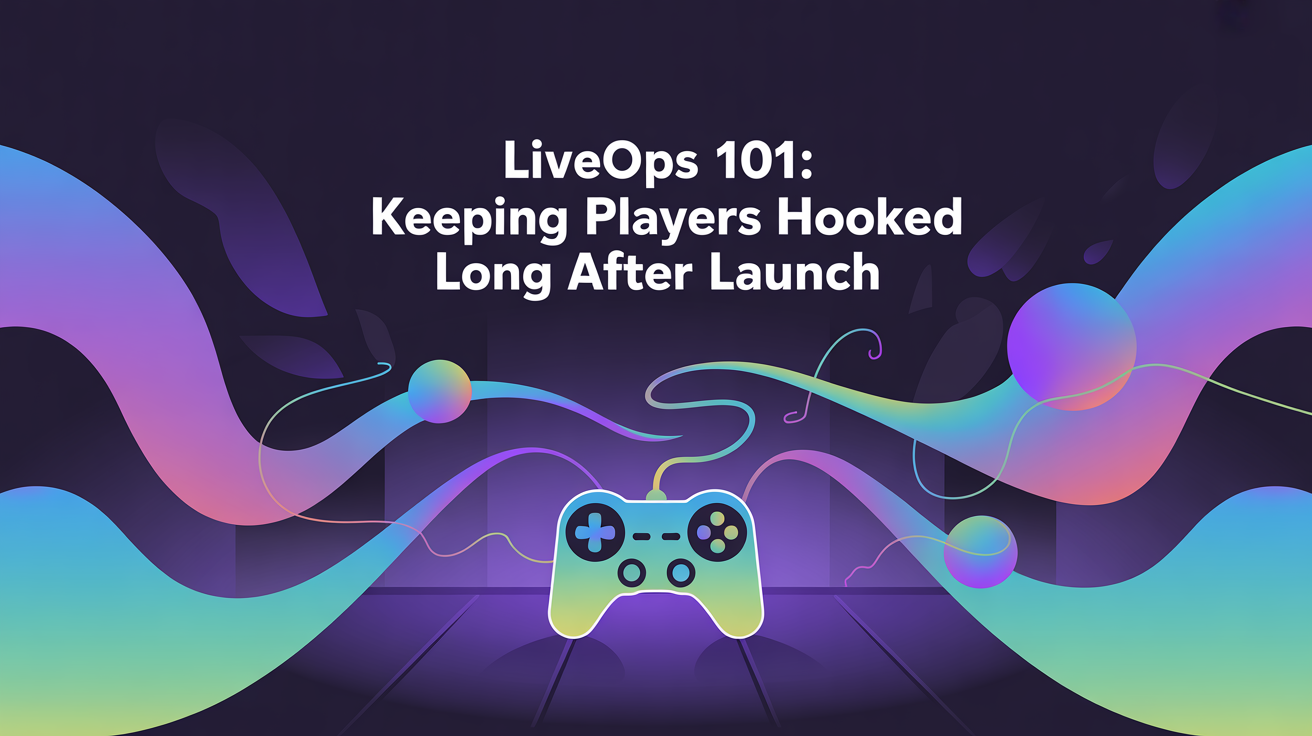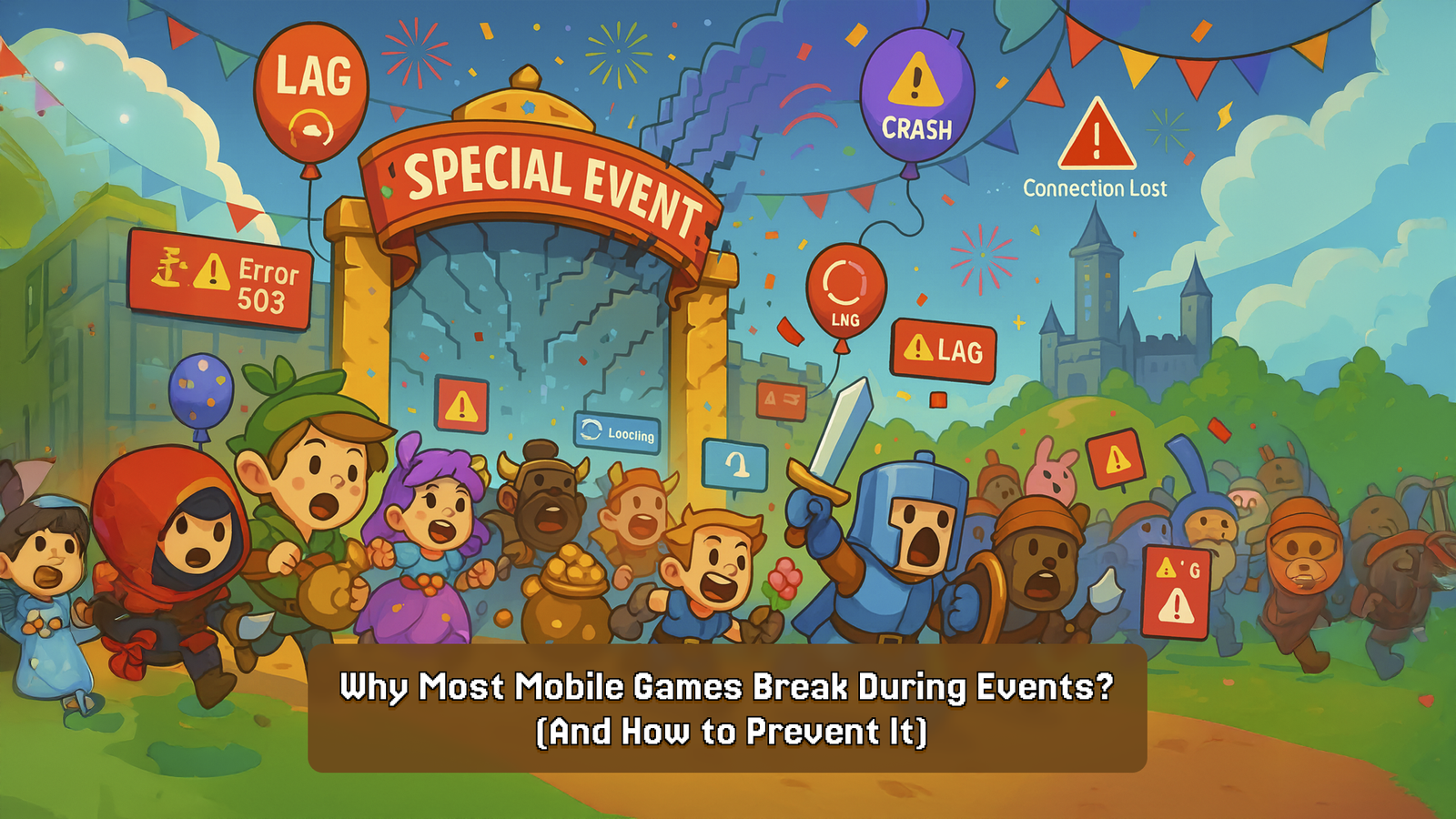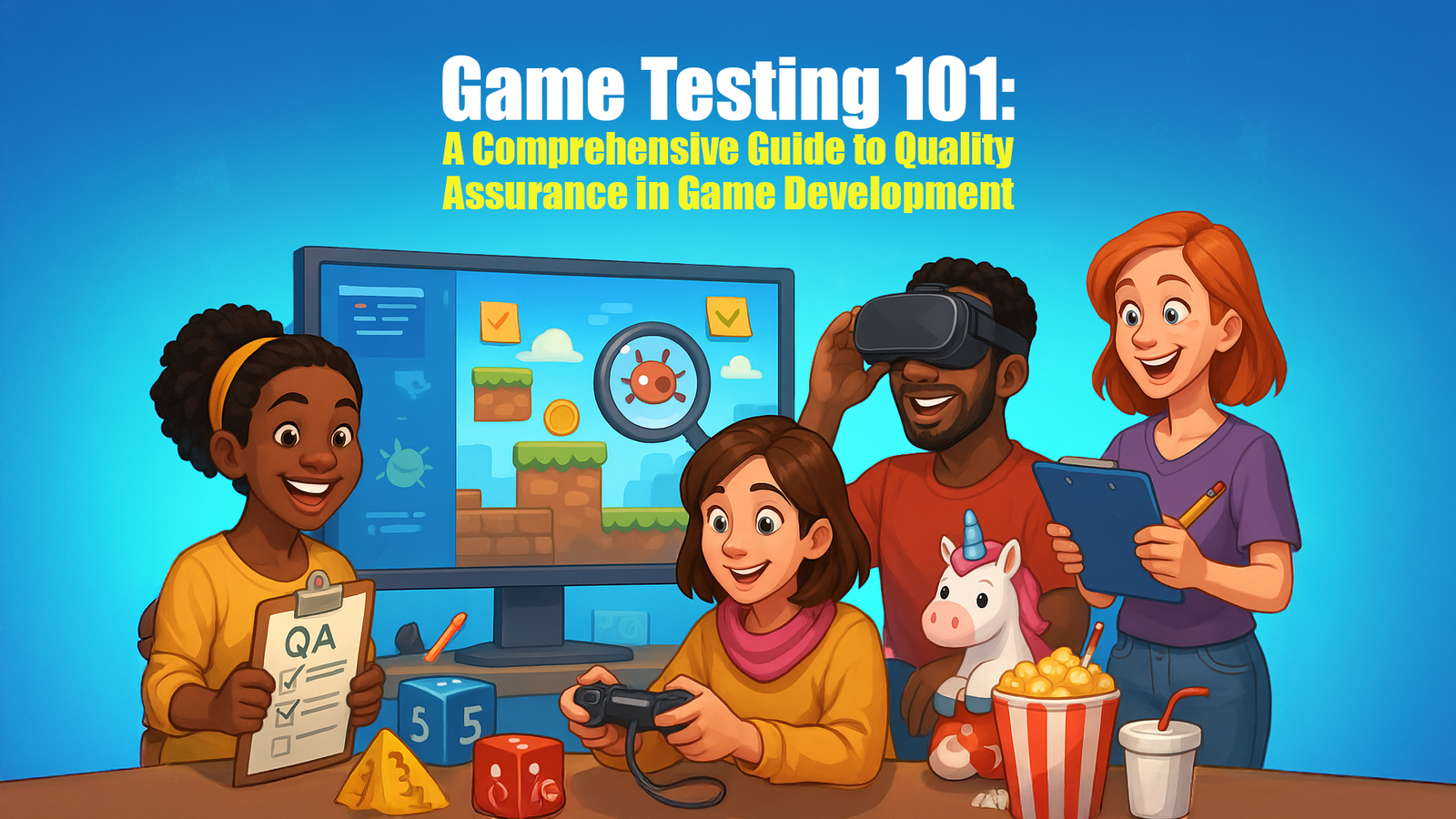Best Mobile Game Engines for 2D Development
Best Mobile Game Engines for 2D Development

Contents
The right game engine affects how your game looks, plays, and feels to players.
So, choosing the right engine is an important step in making a game.
But what exactly is a game engine, and how do you pick the right one? With so many options, it can be hard to know which one will bring your vision to life.
In this blog, we will discuss everything you need about game engines. We have also listed the top 5 engines. Let’s get started!
What is a Game Engine?
A game engine is key software for making video games. It gives developers tools for graphics, physics, sound, and gameplay.
Game engines offer pre-built tools and easy workflows. As a result, developers can focus more on designing and creating unique game experiences.
Here are some key features of the Game Engine.
- Graphics Tools: Game engines help build visuals for both 2D and 3D games. Features of lighting, textures, and special effects help the developer craft an environment that feels either hyper-realistic or artistically stylized.
- Physics Simulation: In addition, physics simulation makes gameplay feel realistic by handling gravity, collisions, and character or object movement. For example, a bouncing ball or a jumping character behaves naturally in the game.
- Audio Integration: Game engines let developers add sounds, music, and character voices. As a result, this makes the game more engaging for players.
- Scripting and Programming: Game logic and interactions mainly involve scripting. It aims to have a high-level language to make it easy to write and understand.
Programming handles complex systems, algorithms, and the game’s structure.
Developers use both to create unique moves, controls, and interactions within the game.
- Cross-Platform Compatibility: Furthermore, many engines let developers build games for PCs, consoles, mobile devices, and VR, all from a single project
When planning to make your game, picking the best-suited engine for your game’s specific needs is crucial. Let’s find out the right way to choose a game engine.
What are the Key Factors to Consider While Choosing a Game Engine?
Choosing the right engine is like laying your game’s foundation. Each engine has unique tools for different needs. The right choice improves workflow and brings your vision to life.
When choosing an engine, focus on a few key points. These will help you find the best fit for your project.
Game Requirements
Your project’s needs should be the main focus when choosing a game engine. Think about everything from the game type to technical details. This matching makes the whole game development process smoother.
Here are some critical factors.
Game Type:
Pick an engine that fits your design. Whether your project is 2D or 3D, choose a tool that works best for that style.
Target Platform:
You should determine which devices you want your game to run on, like PCs, consoles, or phones. Your chosen engine should support the game’s needs.
Game Complexity:
Evaluate how complex your game will be. If you plan to include features like AI or physics, choose an engine capable of handling them. Additionally, consider your budget. Some engines charge licensing fees or annual costs, which may not fit smaller projects.
Budget:
Your budget is an important factor when choosing a game engine. For example, some engines require costly licenses or yearly fees, which may not suit all projects. On the other hand, many free or open-source engines are available that won’t strain your budget
Experience:
Moreover, game engines vary in the level of skill required. If you have reasonable coding experience, you might be comfortable with a more complex engine. Otherwise, choose a beginner-friendly interface.
Game Genre:
The genre of the game is important when choosing the engine according to its features and features. In addition, it helps you identify an engine that matches your project’s technical and graphic requirements.
Monetization Strategy:
Consider how the engine supports in-app purchases or ads. Picking an engine that makes it easy to add these revenue-generating tools can push your game to do well. Look for features that provide options like ad integration, in-game purchases, or subscription-based models.
Target Platform:
Next, determine which devices you want your game to run on, such as PCs, consoles, or phones. Make sure your chosen engine supports these platforms.
Many game engines these days offer multiple platform compatibility with little adjustments. This is a real-time save and cuts down on the hassle later.
You should look into all these factors so you can pick out the game engine that’s the best fit for your project needs, making everything smoother.
Let’s discuss some of the best game engines available for 2D game development.
What are the 5 Best 2D Game Engines?
In the process of 2D Game development, opting for a game engine that offers balance, simplicity, and functionality helps the developers to bring their ideas to life quickly.
The right engine allows you to improve the workflow, provides you with the essential tools in the development process, and caters to your game’s unique requirements.
Here’s the list of 5 top 2D game engines.
Unity
Unity is one of the most well-known game development engines for its versatility and wide-reaching support. Unity offers a wide range of tools, resources, and tutorials that help create high-quality games quickly and effectively.
Popular Games: Monument Valley, Pokémon Go, Call of Duty: Mobile
Key Features
- Versatility: Supports both 2D and 3D games, making it perfect for any type of project.
- Community and Resources: With a huge community and access to the Unity Asset Store, you’ll never run out of tutorials or ready-made assets. For example, developers can easily find plugins or design templates to speed up development.
- Integrated 2D Tools: Includes Sprite Shape and other tools to simplify 2D game development.
Challenges to Consider
- 3D-Focused Interface: This can make 2D game development feel cluttered and more complex than needed.
- Learning Curve: Steep for beginners, especially those unfamiliar with game development tools.
- Licensing Costs: While the engine is free, professional versions come with a cost that may not suit smaller studios.
Pricing
- Personal: Free
- Plus: $399/year per seat
- Pro: $2,040/year per seat
- Enterprise: Custom pricing
Godot Engine
Godot Engine has gained immense popularity among game developers, especially for 2D game creation. It has an open-source nature and no-cost access, which make it a popular choice for indie developers and small studios.
Godot also offers a flexible space for developing games that work smoothly across multiple platforms. It uses a unique scripting method and a lightweight, fast framework.
Popular Game: The Interactive Adventures of Dog Mendonça & Pizzaboy
Key Features
- Open-Source and Free: No hidden costs or licensing fees—perfect for developers on a budget.
- Developer-Friendly Scripting: GDScript, a Python-like language, is intuitive and beginner-friendly.
- Cross-Platform Capability: Create games for various platforms like Windows, Mac, Linux, HTML5, iOS, and Android effortlessly.
- Optimized Performance: Its lightweight framework ensures fast and smooth development.
Challenges to Consider
- Tool Limitations: Advanced developers may find some tools restrictive for complex projects.
- Learning Curve: Transitioning from another engine might take some getting used to.
- Customization Constraints: Not always the best fit for intricate or highly tailored game designs.
Pricing
Free and open-source, with no licensing fees or royalties.
GameMaker Studio 2
GameMaker Studio 2 has a user-friendly interface that is perfect for those in the early stages of their learning curve or focusing on 2D games.
Whether you’re a beginner experimenting with ideas or an experienced developer creating prototypes, it offers a mix of proprietary scripting and visual tools for flexibility and speed.
It also offers built-in features like sprite creation, animation, and level design that help to simplify the development process.
Popular Game: Undertale, Webbed
Key Features
- GML and Drag-and-Drop Tools: The game engine combines coding with no-code options, appealing to all skill levels.
- Built-in Creativity Tools make it easy to control sprites, animation, and levels. This reduces the need for extra software.
- Rapid Prototyping: Quickly turn ideas into playable demos without a steep learning curve.
Challenges to Consider
- Subscription Costs: Licensing for each platform can add up, especially for multi-platform projects.
- Scalability Concerns: While great for small to medium games, it may falter with larger, more intricate projects.
- Code Management: Messy or poorly organized coding can lead to performance issues in bigger games.
Pricing
- Free version available with limited features
- Creator: $9.99/month or $39.99/year
- Indie: $9.99/month or $39.99/year
- Enterprise: Custom pricing
Corona
Corona (Solar2D) is a popular choice for developers looking to create 2D mobile games quickly and efficiently. This lightweight engine is free to use, making it especially attractive to indie developers and small teams. With real-time live preview features and Lua scripting, it offers a simple yet powerful environment for mobile game development.
However, its minimalist interface and the need for external tools for asset creation can be a hurdle for those looking for a one-stop shop for all game development needs.
Popular Game: Gunman Taco Truck
Key Features
- Free: A free, easy-to-learn engine perfect for 2D mobile games.
- Real-Time Feedback: The live preview feature lets you see changes as you make them, making development faster and more intuitive.
- Lua Scripting: Offers simplicity for beginners and flexibility for experienced developers.
Challenges to Consider
- Minimal Interface: Requires external tools for asset creation and animations, which might slow down the process.
- Limited Platform Support: Primarily focused on mobile game development with minimal support for other platforms.
- Sprite Sheet Dependency: Relying on sprite sheets for animations increases workload and limits animation flexibility.
Pricing
Free and open-source, with no licensing fees or royalties.
RPG Maker
RPG Maker is perfect for developers who love making traditional 2D role-playing games. RPG Maker offers easy-to-use tools for building maps, characters, and inventory systems. You don’t need much coding experience, making it great for beginners.
Popular Game: To the Moon
Key Features
- Tailored for RPGs: Explicitly designed for crafting traditional 2D role-playing games, making it perfect for fans of classic RPGs.
- Built-In Tools: Powerful mapping, character creation, and inventory systems that reduce the need for additional software.
- No Coding Required: This is ideal for beginners, as most development tasks can be done through the editor with optional scripting.
Challenges to Consider
- Genre-Specific: Perfect for RPGs but lacks flexibility for developing other types of games.
- Editor-Centric: If you prefer coding, the editor-heavy workflow may feel restrictive.
- Learning Curve: Although simple, mastering the editor’s tools may take time for those new to game development.
Pricing
- RPG Maker MV: Priced at $79.99.
- RPG Maker MZ: Priced at $79.99.
- RPG Maker VX Ace: Priced at $69.99
- RPG Maker VX: Priced at $59.99
All versions include a 30-day free trial.
Winding Up
At Xpress Gaming, we understand the importance of choosing the right game engines. Whether you want to create stunning visuals with Unreal Engine or prefer a more flexible and accessible approach with Unity, our expert developers have the skills to bring your ideas to life.
Are you ready to turn your game vision into an extraordinary experience? Then, reach out today, and let’s create a fantastic game together!
Client Testimonials Blog ID - 15481
At Kuriosity QA, we are committed to providing the highest quality gaming QA services to our clients in the gaming industry. Here’s what some of our satisfied clients have to say about working with us:



